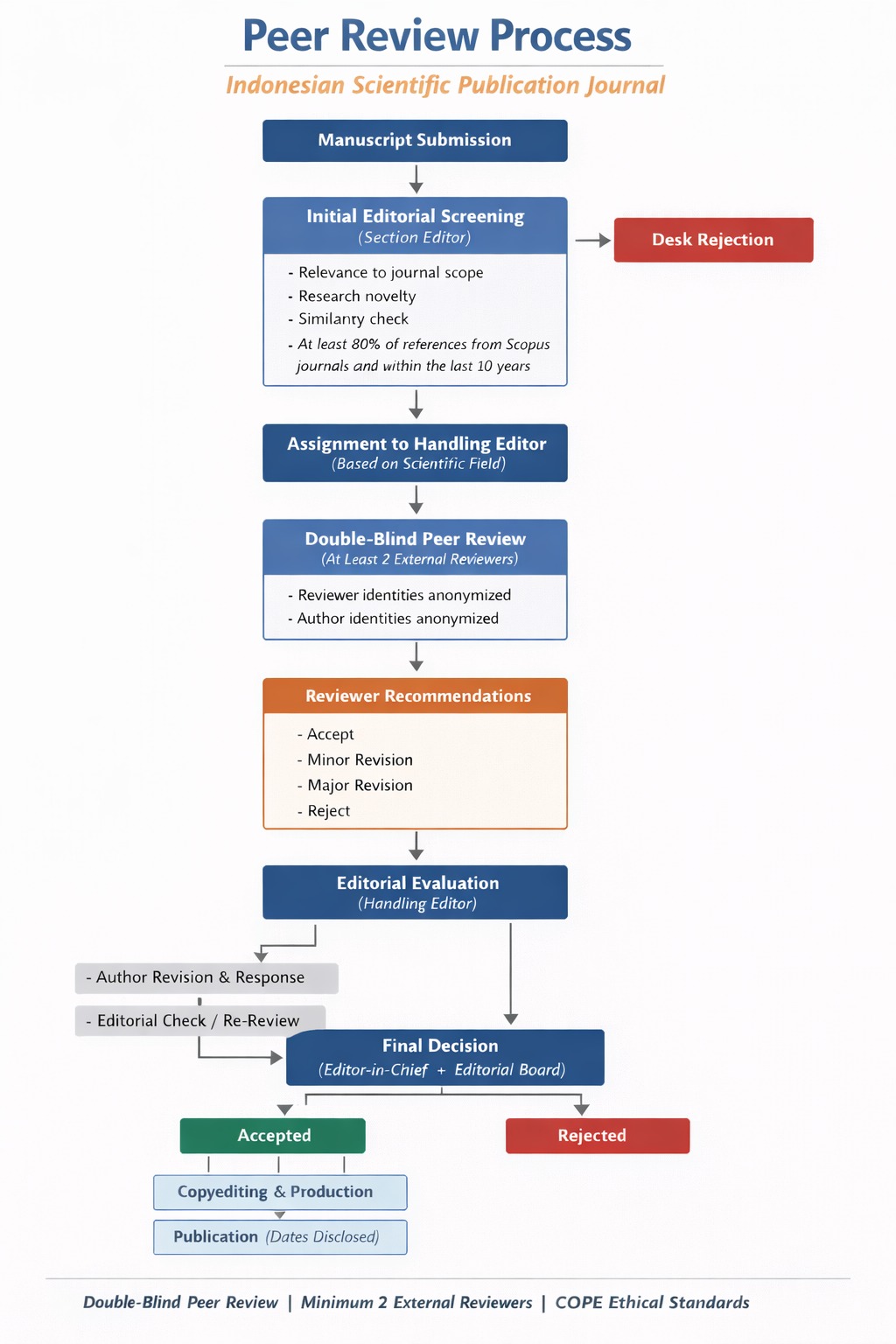Peer Review Process

Peer-Review Process
Harmonia: Journal of Music and Arts follows a rigorous and transparent review process to ensure the quality and credibility of the published articles. The journal adopts a double-blind peer-review system, where the identities of both authors and reviewers are kept anonymous to maintain objectivity and fairness throughout the process.
Submission and Initial Evaluation
All manuscripts submitted to Harmonia: Journal of Music and Arts undergo an initial screening by the editorial team. This screening assesses the manuscript's relevance to the journal’s scope and its compliance with submission guidelines. Manuscripts that pass this stage are assigned a unique identification number for tracking and are forwarded to a handling editor with expertise in the relevant subject area.
Peer Review
Eligible manuscripts are reviewed by a minimum of two independent expert reviewers in the field of music and arts. Reviewers are carefully selected based on their academic and professional expertise. In cases where reviewer opinions differ significantly, additional reviewers may be engaged to ensure a balanced evaluation.
Double-Blind Review
To uphold fairness, the review process is double-anonymous, ensuring that neither the authors nor the reviewers know each other’s identities. This approach minimizes bias and ensures a neutral assessment.
Review Criteria
Reviewers evaluate manuscripts based on the following criteria:
- Originality and significance: Contribution to the field of music and arts.
- Methodological rigor: Sound research methods and analysis.
- Relevance: Alignment with the journal’s scope and readership.
- Clarity of presentation: Quality of writing and organization.
- Ethical compliance: Adherence to ethical research and publication standards.
Reviewers are encouraged to provide constructive feedback and suggestions to help authors improve their manuscripts.
Review Duration
Reviewers typically complete their evaluations within 3–4 weeks. Authors are informed of the review timeline during the initial submission or after significant revisions.
Decision and Revision
Once the peer-review process is complete, the handling editor consolidates reviewer feedback and makes a recommendation to the Editor-in-Chief, who makes the final decision. The possible outcomes are:
- Acceptance: Manuscript is ready for publication.
- Minor revisions: Authors address specific comments within a short timeframe (usually 3 weeks).
- Major revisions: Substantial changes are required, with a longer revision period (usually 6–8 weeks).
- Rejection: Manuscript is not suitable for publication in the journal.
- Resubmission: Authors are encouraged to revise and submit the manuscript as a new submission after significant changes.
Revised manuscripts are reassessed by the handling editor, and if necessary, the original reviewers are consulted to evaluate the changes.
Editorial Decision
The final decision on publication rests with the Editor-in-Chief, considering the handling editor’s recommendations and the reviewers’ feedback. Authors are notified of the decision along with detailed reviewer comments to guide them.
Post-Acceptance Process
Accepted manuscripts undergo final formatting, copyediting, and proofreading. Authors are given a final opportunity to review the proofs before online publication.
Confidentiality
The journal ensures strict confidentiality of the peer-review process. Manuscripts and reviewer comments are treated as confidential and are not disclosed to unauthorized parties.
Continuous Improvement
Harmonia: Journal of Music and Arts is committed to continually improving its peer-review process. Feedback from reviewers, authors, and editors is used to enhance efficiency and fairness. Updated guidelines and training are provided to reviewers to maintain high standards in the review process.
Contact
For any inquiries regarding the peer-review process, please contact the editorial team at [email protected]





